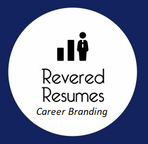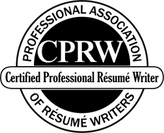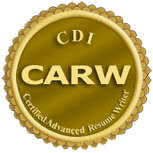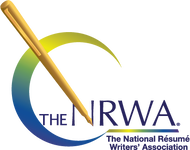Accounting & Finance Resume Writing Services | Accounting Resume Writers | Finance Resume Writers4/25/2019
The job possibilities for impressive accounting and finance resumes are almost endless. There are many corporate accounting positions that are available to qualified candidates, including payroll, finance director, tax specialist, and accounts payable expert. A good accounting and finance resume can also open up doors to jobs with the government such as grant underwriting, forensic accounting, and budgeting. The list of duties found on an accounting and finance resume include monitoring revenue, tracking expenses, creating executive reports, and filing government forms. The more that you can show on your accounting and finance resume, the higher your salary will be. If you want the truly significant responsibilities with your account and finance resume, then you have to show that you’ve earned those responsibilities with your educational and professional background. An accounting and finance resume must include a four-year degree in accounting. In order to maximize your accounting and finance resume, you should also have an MBA or some equivalent business education as well. Given the many different options that an accounting and finance resume offers, it’s helpful to have a specific kind of training and education as part of your background. For example, if you’re trying to develop a strong accounting and finance resume in forensics, then an educational background in law enforcement would be appropriate. You’ll also want to pursue your CPA status to help enhance your accounting and finance resume. 1. Which skills are the best to list on an accounting resume? Every accounting resume sample in our collection illustrates accounting skill sets to list in your resume if they apply to you. It is also crucial to look at the description of the job to which you are applying to identify the key skills employers want to see in applicants. If you possess those skills, display them prominently in your resume. Such skills may include expertise in GAAP, auditing, or general ledger reconciliation. You may also want to showcase skills in accounts payable and receivable, budgeting, forecasting, and reporting. 2. How do you list references on an accounting resume? The general practice today is to avoid listing references in your resume. The space in your resume is valuable, and it is best to use it to provide as much information as possible regarding your skills, experience, and accomplishments, as our accounting resume sample exemplifies. Have your references on hand to give to hiring managers upon request. However, there is an exception to this rule. If employers ask in the open job’s listing for resumes that include references, create a section in your document for that purpose. Be sure to make advance contact with the people you plan to provide information for and get their permission to use them as references. 3. What sections should you include in your accounting resume? The sections your resume needs may vary depending on your specific qualifications. Regardless, there are a few standard sections to include, as shown in each accounting resume sample that we offer. Your resume should begin with a professional summary statement or profile, or, if you are transitioning from another field into accounting or you recently graduated, an objective statement. It should also have skills, work experience, and education sections. It may seem challenging to determine each section’s position and content within your document. Simplify the process with our effortless resume builder. Use it to create a resume in minutes. 4. How can you separate your accounting resume from other candidates’ resumes? There are many ways to make your accounting resume stand out to hiring managers. First, make sure every section of your resume relates to the position to which you are applying. Use accounting keywords, particularly those you find in the position’s description, to capture employers’ attention. Then, use your work experience section to not only describe previous responsibilities, but also show employers what you are capable of professionally. Use strong action words in every line and make your accomplishments memorable by describing them with percentages and other metrics. Use a relevant accounting resume sample to learn how to do this. 5. What goes in the header of an accounting resume? As you study an accounting resume sample to learn how to write your summary, skills, experience, and education sections, don’t forget that your resume needs a professional header as well. Your header belongs at the top of your resume, either in the center of the page or next to the left or right margin. Display your formal name first, leaving out unprofessional nicknames. Then list your current city and state. Follow with a professional email address that uses a current server. Include a telephone number that you access easily, but not your current work number. Accounting & Finance Jobs We Write For:
 What Should Your Accounting & Finance Resume Look Like? If you know people that work in accounting and finance, you know they love working with numbers, are highly analytical and detail-oriented and love to solve problems. One thing they may struggle with is being able to put their achievements down in words. Writing a resume may be somewhat of a challenge for someone who specializes in analyzing data and executing calculations. Here are some tips to ensure your accounting or finance resume will stand out among the competition. Even during times when unemployment rates for accounting and finance professionals are near all-time lows, it is still a competitive market for job seekers. Senior managers in a recent survey conducted by Robert Half said that they typically receive 40 resumes for every open position, and they spend 12 minutes per resume looking for candidates to interview. Generally, recruiters will spend even less time, about 30 seconds, skimming resumes to send over to hiring managers for review, only glancing briefly at the top one third of each resume. Therefore, the first impression you want to make on a hiring manager is that you have what companies want, so you will need to make those 30 seconds count. When you write your accounting resume or you will want to closely follow the recommendations below: 1. Employ honesty and integrity when describing the scope of your prior role and any quantifiable information you share. At the top of your resume, highlight your skills and experience in an executive summary to convey your most impressive achievements. Present your career accomplishments and focus on what you achieved in each of your positions. In the education section, if you’ve been working in accounting for several years, you don’t need as much emphasis as if you were newly graduated. If you have work experience, place your education below your jobs, however, if you are a recent college grad and looking to transition into an accounting or financial role, you can put your education above your experience and highlight some of your relevant courses. 2. Be sure to proofread your document(s) a few times to ensure accuracy and grammar. Have someone you trust review, edit and check the document for spelling errors or typos. Having a second set of eyes can sometimes help catch things you may miss. You wouldn’t want to send out any resume blunders, such as one that describes yourself as “familiar with all faucets of accounting,” as if you were an accountant by day and plumber by night. Or listing “thieves well in high-pressure environments” as one of your core qualifications. It also helps to print out your resume for closer review, take a break and return with a fresh set of eyes. 3. Assess terminology that might be understood within the firm where you worked but has no meaning to an outsider who reads your resume. Watch for jargon and acronyms, too, and if the skills you used at your previous position aren’t transferable to the one you’re applying for, don’t give them space on your resume. Try to find words and phrases that can describe these terms in general accounting lingo that will be understood by new and prospective employers. 4. Make sure your skills match what’s in the job description. Most job postings for accountants include technical, software and interpersonal requirements. As you scrutinize your resume, ask yourself how well it matches the elements of the job description and if it conveys the match clearly and early in the document. 5. Showcase your achievements with numbers, whenever possible. How many invoices did you prepare and send out each week? Were you able to save your employer time by reducing the month-end close process and if so, how did you achieve that? How much time did you save? Were you successful in collecting on a severely past due account? If so, state how you did that and how much you were able to collect. Some achievements may not be possible to quantify but are still worth noting. For example, we recently wrote a resume for a Financial Analyst who aided in the development of a new database that automated the account reconciliation process. While the candidate couldn’t say how much money they saved exactly, they were able to state that they reduced the process from several days down to a few hours, freeing up several analysts to take on other projects. 6. Identify some keywords that the employer might be looking for, and try to use them in context, if they honestly describe your abilities. This resume tip will help resume-filtering software or Applicant Tracking Systems (ATS) find you when they’re scanning resumes. Even small and midsize organizations are beginning to use automated screening tools due to the sheer volume of applications received, and larger firms often use them to narrow the pool of resumes to be reviewed. 7. What about the length of the resume? Many applicants for accounting and finance roles often want to know how they can fit everything in their background if they should stick to the one-page sample they often see. In a recent Accountemps survey, 46% of senior managers said they prefer a one-page resume for staff-level candidates, while 47% said two pages is an ideal length. For executive roles, half of managers cited two pages as acceptable, while 21% were most receptive to one page. Our recommendation is that a two-page resume is acceptable if you have five or more years of experience. For additional feedback or to find out how we can help get your resume tailored for your next position, visit www.reveredresumes.com. |
Categories
All
Archives
December 2023
|
HOURSM-F: 9am - 5pm
|
|




